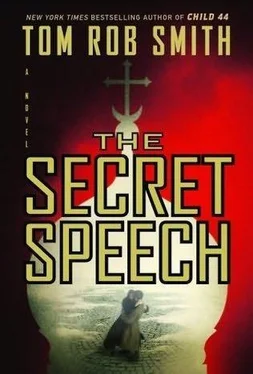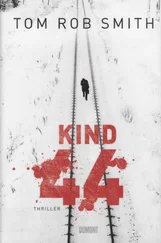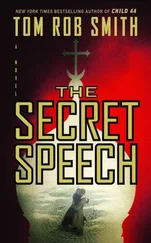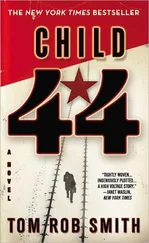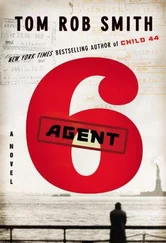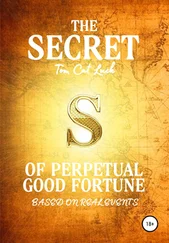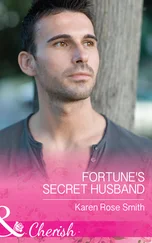Tom Smith - Secret speech
Здесь есть возможность читать онлайн «Tom Smith - Secret speech» весь текст электронной книги совершенно бесплатно (целиком полную версию без сокращений). В некоторых случаях можно слушать аудио, скачать через торрент в формате fb2 и присутствует краткое содержание. Жанр: Триллер, на английском языке. Описание произведения, (предисловие) а так же отзывы посетителей доступны на портале библиотеки ЛибКат.
- Название:Secret speech
- Автор:
- Жанр:
- Год:неизвестен
- ISBN:нет данных
- Рейтинг книги:5 / 5. Голосов: 1
-
Избранное:Добавить в избранное
- Отзывы:
-
Ваша оценка:
- 100
- 1
- 2
- 3
- 4
- 5
Secret speech: краткое содержание, описание и аннотация
Предлагаем к чтению аннотацию, описание, краткое содержание или предисловие (зависит от того, что написал сам автор книги «Secret speech»). Если вы не нашли необходимую информацию о книге — напишите в комментариях, мы постараемся отыскать её.
Secret speech — читать онлайн бесплатно полную книгу (весь текст) целиком
Ниже представлен текст книги, разбитый по страницам. Система сохранения места последней прочитанной страницы, позволяет с удобством читать онлайн бесплатно книгу «Secret speech», без необходимости каждый раз заново искать на чём Вы остановились. Поставьте закладку, и сможете в любой момент перейти на страницу, на которой закончили чтение.
Интервал:
Закладка:
Zoya grabbed Leo’s arm:
– Why aren’t they helping him?
Leo, a soldier, had seen injuries like this before. The blood was black: shrapnel had penetrated Malysh’s liver. On the battlefield there was no hope of survival. Conditions in this hospital were little better than that. There was nothing they could do.
– Why aren’t they treating him!
There was nothing Leo could say.
Zoya barged through the crowd, grabbing the doctor’s arm, attempting to pull him back toward Malysh. The other people scolded her. But she wouldn’t let go until eventually she was pushed back and shouted at. She tumbled to the floor, lost among their legs. Raisa lifted Zoya off the hospital floor.
– Why aren’t they helping him?
Zoya began to cry, putting her hands on Malysh’s face. She stared up at Leo, her eyes red, imploring:
– Please, Leo, please, I’ll do anything you want, I’ll be your daughter, I’ll be happy. Don’t let him die.
Malysh’s lips moved. Leo lowered his head, listening.
– Not… in… here.
Leo carried Malysh to the entrance, through the blood-soaked arrivals, out of the main doors, away from the reception area, finding a place where they could be alone. In the flowerbeds, where the plants had died back and the earth was frozen, Leo sat down, propping Malysh against his legs. Zoya sat beside him. She took hold of Malysh’s hand. Raisa remained standing, restless, pacing:
– Maybe I can find something for the pain?
Leo looked up, shaking his head. Twelve days into the conflictthere’d be nothing left in the clinic.
Malysh was calm, sleepy, his eyes shutting and opening. He regarded Raisa:
– I know that…
His voice was faint. Unable to hear, Raisa sat beside him. Malysh continued:
– Fraera lied… I know… you’re not… my mother.
– I would’ve wanted nothing more than to be your mother.
– I would have liked to… have been your son.
Malysh shut his eyes, turning his head, resting it against Zoya. She lay beside him, her head close to his, as if they were both about to go to sleep. She wrapped her arm around him, whispering:
– Did I tell you about the farm we’re going to live on?
Malysh didn’t reply. He didn’t open his eyes.
– It’s near a forest, that’s full of berries and mushrooms. There’s a river and in the summer, we’ll swim… We’re going to be very happy together.
SAME DAY
STANDING ON THE REMAINS of the roof, Fraera was no longer holding a gun but a camera, photographing the destruction: images that would soon be printed around the world. If this, her last reel of film, didn’t survive, it didn’t matter. She’d already accumulated many hundreds of photographs, smuggling them out of the city, using the families of the dissidents and insurgents as well as the international press. Her images of dead citizens, buildings destroyed, would be published for years to come under the title: source anonymous.
Perhaps for the first time since her son had been taken from her nearly seven years ago, she was alone, no Malysh by her side, no men ready when she called. The gang that she’d spent years putting together had broken apart. The few remaining vory had fled. The band of insurgents had been broken. In the first wave of attacks this morning many had died. She’d photographed their bodies. Zsolt Polgar, her translator, had remained by her side. She’d been wrong about him. He’d died for his cause. As he lay dying, she’d photographed him with particular care.
She had only three photographs left. In the distance a fighter jet circled, coming toward her. She raised the camera, bringing the jet into focus. The MIG dropped into an attack position. Tiles around her began to shatter. She waited until the jet was almost directly overhead. As the roof exploded, fragments of slate burning into her arms and face, she had no doubt her last photograph would be her greatest of all.
TWO WEEKS LATER
His first day at work: Leo’s hands were covered in flour and his face was hot from the ovens. Taking out a batch of newly baked loaves, he heard Filipp call out:
– Leo, you have a visitor.
An immaculate Frol Panin entered the bakery. He surveyed the premises with condescending good humor. Leo observed:
– No request we can’t accommodate: rye with coriander seeds, or sweetened with honey rather than sugar. Kosher, or oil-free…
He took one of the still-warm loaves, breaking it, offering it to Panin, who accepted, taking a bite. The man who’d betrayed him and who’d collaborated with his enemies showed no embarrassment, no guilt or shame, chewing contentedly:
– It’s very good.
Panin put the bread down, dusting the flour off his fingers and checking that Filipp was out of earshot:
– Leo, no one is going back to Stalinism. There will be no more mass arrests. The camps are closing. Interrogation cells are being ripped out. These changes are in progress. They will continue. But they must continue in secret, without any admission of wrongdoing. We shall go forward… without looking back.
Despite everything, Leo couldn’t help but admire Panin. He could have arranged for Leo to have never made it out of Budapest. Yet Panin weighed up every decision on a purely practical basis. He did nothing out of malice or spite. With the uprising defeated and Fraera dead, Leo was an irrelevancy and so he’d been allowed to live.
– Frol Panin, what do you want from me? You won.
– I would argue that we all won.
– No, I lost a long time ago. I’m just trying not to lose anymore.
– Leo, whatever you may think of me, my decisions were always for Leo interrupted:
– The greater good?
Panin nodded, adding:
– I want you to work for me. We need men like you.
– Men like me.
Leo let the phrase hang before asking:
– You’re going to reopen the homicide department?
– No, we’re not ready for that yet.
– When you are, I’ll be here.
– Baking rye with coriander seeds?
Panin smiled:
– Very well, I hope one day I can be of some help to you.
It was an apology of sorts: a secret apology. Leo accepted the gesture:
– There is one thing you could do for me.
SAME DAY
At the reception to the Moscow Conservatory, Leo asked for Piotr Orlov, one of the country’s most promising young violinists. He was directed to a rehearsal room. Orlov, in his late twenties, opened the double, soundproofed doors, remarking brusquely:
– Yes?
– My name is Leo Demidov. Frol Panin said you could help.
Hearing Panin’s name the violinist became more amiable.
The rehearsal room was small. There was a music stand, an upright piano. Orlov was holding his violin by the neck. His bow was on the stand, along with a stub of wax.
– What can I do for you?
Leo opened his folder, taking out a single sheet of paper, a hole burnt through the middle. The hole had been burnt seven years ago using a candle in Lazar’s church. As the paper had turned black, Leo had impulsively changed his mind. He’d placed it on the stone floor, stamping out the flames. The charred music-all that remained of the arrested composer’s work-had been stored in Lazar’s file, evidence of his counterrevolutionary associations.
Orlov stepped up to the stand, examining the few surviving notes. Leo commented:
– I can’t read music so I don’t know whether there’s even enough to get a sense of the whole piece. I wanted to hear it played aloud, as much as is possible.
Orlov raised his violin to his chin, picked up his bow, and began to play. Leo was not in the least bit musically minded. He’d expected it to be slow and sad. But it was fast and fun and he liked it very much.
Читать дальшеИнтервал:
Закладка:
Похожие книги на «Secret speech»
Представляем Вашему вниманию похожие книги на «Secret speech» списком для выбора. Мы отобрали схожую по названию и смыслу литературу в надежде предоставить читателям больше вариантов отыскать новые, интересные, ещё непрочитанные произведения.
Обсуждение, отзывы о книге «Secret speech» и просто собственные мнения читателей. Оставьте ваши комментарии, напишите, что Вы думаете о произведении, его смысле или главных героях. Укажите что конкретно понравилось, а что нет, и почему Вы так считаете.
